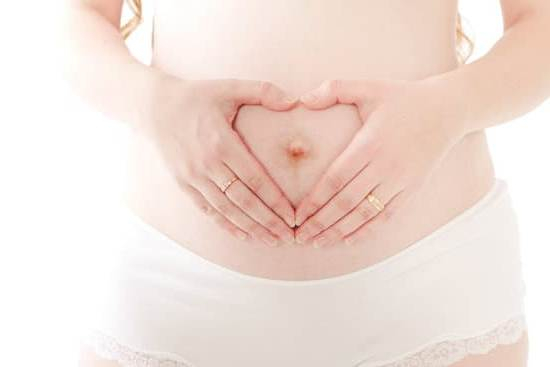When do cravings start in pregnancy? Understanding the onset of these intense desires for specific foods and non-food items is a common topic of curiosity for expectant mothers.
Throughout the course of pregnancy, women often experience unique and sometimes unusual cravings that can vary in intensity. This article will explore the timeline of when these cravings typically begin, how hormonal changes affect them, common cravings during each trimester, coping strategies, nutritional considerations, and when to seek help for abnormal or intense cravings.
Pregnancy cravings can provide insight into the body’s nutritional needs and hormonal changes. It is important to understand the underlying factors that contribute to these intense desires, as well as how to manage them effectively.
In this article, we will delve into the early signs of pregnancy that indicate the onset of cravings, as well as explore the impact of hormonal changes on a pregnant woman’s appetite and food preferences. Additionally, we will discuss common and unusual cravings experienced during different stages of pregnancy, along with tips for managing and choosing healthy options for satisfying these desires.
Early Signs of Pregnancy
During the early stages of pregnancy, many women may start to experience cravings for specific foods or even non-food items. These cravings can be one of the first signs that a woman is pregnant, often occurring before any other noticeable symptoms. While the exact cause of pregnancy cravings is not fully understood, hormonal changes are believed to play a significant role in their onset.
Typically, cravings in pregnancy can start as early as the first trimester and tend to peak during the second trimester. This is when many women report experiencing intense desires for certain foods or combinations of flavors that they may not have had an interest in before becoming pregnant. It is important to note that while cravings are common during pregnancy, not every woman will experience them, and those who do may have varying degrees of intensity.
The onset of cravings in pregnancy can be influenced by a variety of factors, including individual differences in hormonal fluctuations and changes in taste preferences. Additionally, stress levels and emotional well-being can also contribute to the development and intensity of pregnancy cravings. As such, it’s essential for expectant mothers to pay attention to their bodies and seek out healthy ways to manage their cravings while ensuring proper nutrition for both themselves and their growing baby.
How Hormonal Changes Affect Cravings in Pregnancy
Pregnancy is a time of great change, both physically and emotionally, for expectant mothers. As the body undergoes hormonal shifts to support the growth and development of the baby, these changes can also impact a woman’s cravings and appetite. Understanding how hormonal changes affect cravings in pregnancy is important for expectant mothers and their partners to navigate this period with ease.
Impact of Hormones on Cravings
Hormonal fluctuations, particularly the rise in estrogen and progesterone levels, play a significant role in influencing food preferences during pregnancy. These hormones can alter taste perception, sensitivity to certain odors, and even the body’s response to hunger and fullness cues. As a result, pregnant women may find themselves craving certain foods they previously disliked or experiencing aversions to foods they once enjoyed.
Triggers for Cravings
In addition to hormonal changes, other factors can contribute to the onset of cravings in pregnancy. Stress, fatigue, and emotional fluctuations are common triggers for cravings among expectant mothers. For some women, cravings may also be prompted by specific nutrient deficiencies or imbalances in the body. Understanding these triggers can help pregnant women better manage their cravings and make informed choices about their nutrition.
Managing Hormonal Cravings
When do cravings start in pregnancy? It’s not uncommon for women to experience cravings as early as the first trimester when hormonal changes are most pronounced. To manage hormonal cravings effectively, it’s important for pregnant women to maintain a balanced diet that includes a variety of nutrient-dense foods.
Additionally, finding healthy substitutes for indulgent cravings can help satisfy the urge while still supporting overall well-being during pregnancy. Engaging in regular physical activity and seeking emotional support from loved ones can also aid in managing hormonal cravings throughout each trimester of pregnancy.
Common Cravings During Each Trimester
Pregnancy cravings can be a significant aspect of the overall experience of expecting a child. Many women report experiencing cravings at different points throughout their pregnancy. It’s important to note that cravings can vary widely from person to person, and even from one pregnancy to another for the same individual. However, there are some common trends in terms of cravings during each trimester.
In the first trimester, when do cravings start in pregnancy is a question many women may ask themselves. Cravings can begin as early as the first few weeks after conception. During this time, hormonal changes are at their peak, often leading to heightened senses and altered taste preferences. Many women report craving sour foods, such as pickles or citrus fruits, which could be related to morning sickness and nausea that are common during this period.
Moving into the second trimester, many women find that their cravings become more specific and intense. This is also a time when women often crave sweet foods, such as chocolate or ice cream, as well as salty snacks like potato chips. Some may also develop aversions to certain foods that they previously enjoyed. These changes in taste preferences can be attributed to continued hormonal fluctuations and increasing appetite due to the growing baby.
During the third trimester, cravings may shift once again as the body prepares for labor and delivery. While some pregnant individuals continue to have similar cravings from earlier in their pregnancy, others may find themselves desiring heartier fare such as red meat or savory dishes.
Additionally, some women may experience increased thirst and a desire for cold beverages due to the physical demands of late-stage pregnancy. It’s important for expectant mothers to listen to their bodies and try to balance indulging in cravings with maintaining a healthy diet overall.
| Trimester | Common Cravings |
|---|---|
| First Trimester | Sour foods like pickles or citrus fruits |
| Second Trimester | Sweet foods like chocolate or ice cream; salty snacks like potato chips |
| Third Trimester | Hearty meals like red meat; increased thirst for cold beverages |
Unusual Cravings
Pregnancy cravings can range from the typical to the bizarre, and many women experience unusual cravings during their pregnancy. These unexpected desires for certain foods or combinations of flavors can be surprising and even entertaining for many expecting mothers. It’s important to understand that these cravings are normal and varied, and they can come at any point during the pregnancy.
When Do Unusual Cravings Start?
Unusual food cravings in pregnancy can start as early as the first trimester or as late as the third trimester. Some women may not experience unusual cravings at all, while others may have them consistently throughout their pregnancy. These unusual cravings can vary widely from person to person, and they may change over time, making it a unique experience for each individual.
Exploring Strange Combinations
Some pregnant women find themselves craving odd pairings of foods or flavors that they wouldn’t normally enjoy outside of pregnancy. This might include combinations like pickles and ice cream, peanut butter and pickles, or even non-food items such as chalk or dirt due to a condition known as pica.
While these cravings may seem strange, they are a common occurrence in pregnancy and typically do not cause harm if managed appropriately. However, it is important to consult a healthcare provider if craving non-food items, as this could signal an underlying nutritional deficiency that needs to be addressed.
Managing Unusual Cravings
For women experiencing unusual food cravings during pregnancy, it’s important to find ways to manage them in a healthy manner. This includes being mindful of portion sizes and choosing nutrient-dense options when possible. For those with more extreme or concerning cravings, speaking with a healthcare provider can provide valuable insight on how to address these desires while maintaining overall health and well-being during pregnancy.
Coping With Cravings
Pregnancy cravings are a common phenomenon experienced by many expectant mothers. These intense desires for specific foods or flavors often start early in the pregnancy and can last throughout all three trimesters. Coping with these cravings can be a challenging aspect of pregnancy, but there are several strategies that can help manage and even embrace this experience.
One way to cope with pregnancy cravings is to be prepared with healthy snack options. Stocking up on fruits, nuts, and other nutritious snacks can help satisfy sudden cravings while still providing essential nutrients for both the mother and the growing baby. Creating a list of healthier alternatives to common pregnancy cravings can also be beneficial in making better food choices when the desire for unhealthy foods arises.
Engaging in regular physical activity can also help manage pregnancy cravings. Exercise releases endorphins, which can elevate mood and reduce the intensity of cravings. Taking a daily walk, practicing prenatal yoga, or engaging in low-impact workouts tailored for pregnant women can not only help cope with cravings but also support overall well-being during this special time.
In addition, seeking support from loved ones and other expectant mothers can provide emotional comfort and encouragement when dealing with pregnancy cravings. Connecting with others who have experienced similar challenges can offer valuable tips and coping mechanisms for managing cravings during pregnancy. Sharing experiences and advice in a supportive community setting can make the journey of coping with cravings feel less isolating and more manageable.
Nutritional Considerations
Pregnancy is a time when many women experience intense cravings for certain foods that they may not have had an interest in before. These cravings can be influenced by hormonal changes, cultural factors, and individual preferences. It is important for pregnant women to pay attention to their cravings and make healthy choices to ensure the well-being of both themselves and their growing baby.
When it comes to managing pregnancy cravings, it’s essential to focus on making nutritious food choices while still satisfying those strong desires. Here are some tips for choosing healthy options when you’re experiencing pregnancy cravings:
- Stock up on nutrient-dense snacks: Instead of reaching for unhealthy processed foods when a craving strikes, consider having a variety of nutrient-dense snacks on hand. This can include things like fresh fruit, nuts, yogurt, or whole grain crackers.
- Find healthier alternatives: If you’re craving something sweet, try satisfying your sweet tooth with naturally sweet options like dried fruit or a small piece of dark chocolate. If you’re craving something salty, opt for whole grain pretzels or air-popped popcorn instead of high-sodium snacks.
- Balance your cravings with nutrients: If you find yourself craving certain foods that may not be the healthiest choice, try balancing them out with more nutritious options. For example, if you’re craving ice cream, pair it with some fresh berries for added vitamins and fiber.
By being mindful of the nutritional value of the foods you choose to indulge in during pregnancy, you can satisfy your cravings while still providing essential nutrients for the health and development of your baby.
Remember that it’s completely normal to have cravings during pregnancy. However, it’s also important to listen to your body and ensure that you are making healthy choices as much as possible. Always consult with your healthcare provider if you have concerns about any intense or abnormal cravings during pregnancy.
When to Seek Help
It is common for pregnant women to experience cravings for specific foods or strange food combinations. While most pregnancy cravings are harmless and simply a normal part of the pregnancy experience, there are instances when cravings can become abnormal or intense. It is important for pregnant women to understand when to seek help for these types of cravings in order to ensure their overall well-being and that of their baby.
Abnormal or intense cravings during pregnancy may be linked to certain nutritional deficiencies or underlying health concerns. For example, intense cravings for non-food items such as dirt, chalk, or ice (a condition known as pica) may indicate an iron deficiency. Additionally, extreme cravings for unhealthy or harmful substances could potentially harm both the mother and the baby. Therefore, it is crucial for pregnant women to recognize when their cravings may be cause for concern and seek appropriate medical attention.
If a pregnant woman finds herself experiencing uncontrollable or distressing cravings that interfere with her daily functioning, it may be a sign of a more serious issue such as an eating disorder or mental health condition. Seeking help from healthcare professionals such as obstetricians, nutritionists, and psychologists can provide support and guidance in managing these abnormal cravings.
With early intervention and proper treatment, it is possible to address these issues and ensure a healthy pregnancy journey for both the mother and the baby.
Conclusion
In conclusion, pregnancy cravings can start as early as the first trimester and continue throughout the entire pregnancy. The onset of cravings is often one of the first signs that a woman may be pregnant, and it is important to understand how hormonal changes can affect these cravings. While many women experience common cravings for certain foods, others may have unusual or unexpected cravings that are completely out of the ordinary.
It’s important for pregnant women to embrace the experience of pregnancy cravings and find ways to manage them in a healthy manner. This may involve making nutritional considerations and choosing healthier options for satisfying these cravings. Being mindful of what you eat during pregnancy is crucial not just for your own health but also for the development of the baby.
If you find yourself having abnormal or intense cravings during pregnancy, it’s important to seek help from your healthcare provider. These intense cravings could be a signal that there are underlying issues that need to be addressed. Overall, while pregnancy cravings can be challenging at times, embracing this unique aspect of pregnancy can also be a rewarding part of the journey to motherhood.
Frequently Asked Questions
How Early in Pregnancy Do You Get Craving?
Cravings during pregnancy can start as early as the first trimester, usually around 6-8 weeks into the pregnancy. However, every woman and every pregnancy is different, so some may experience cravings earlier or later.
What Do Pregnancy Cravings Feel Like?
Pregnancy cravings can feel like an intense and specific desire for certain foods or combinations of flavors that you may not have been interested in before. It’s often described as a strong urge that is hard to ignore, sometimes even bordering on a feeling of obsession.
What Happens if You Ignore Pregnancy Cravings?
Ignoring pregnancy cravings isn’t necessarily harmful, but it can lead to feelings of frustration or dissatisfaction. It’s important to listen to your body and try to satisfy your cravings in moderation. Ignoring them completely might make you feel more anxious or stressed during an already challenging time.

Welcome to my fertility blog. This is a space where I will be sharing my experiences as I navigate through the world of fertility treatments, as well as provide information and resources about fertility and pregnancy.





